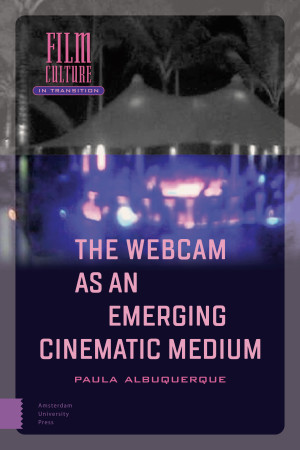"Something about Albuquerque’s enthusiasm for the cinematic possibilities of the webcam is absolutely infectious. I confess that before reading the book, I had never really considered webcams as anything particularly valuable. ... Albuquerque’s argument, however, is extremely well made, and her writing style made for one of the most readable scholarly pieces I’ve yet read. All in all, Albuquerque has written an excellent piece, and made a believer out of me." - Jonathan T. Pearce, Film Matters 10.2 (2019)
''Both innovative, intuitive, rigorous, and rich in theoretical advancements, The Webcam as an Emerging Cinematic Medium analyzes these different aesthetic forms with its characteristics, rules, and codes."
– Yves Laberge, Séquences, issue 339, 2024

